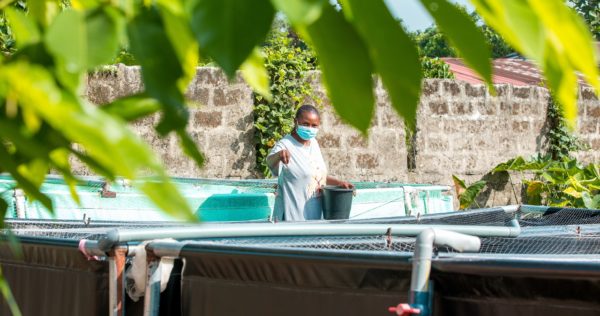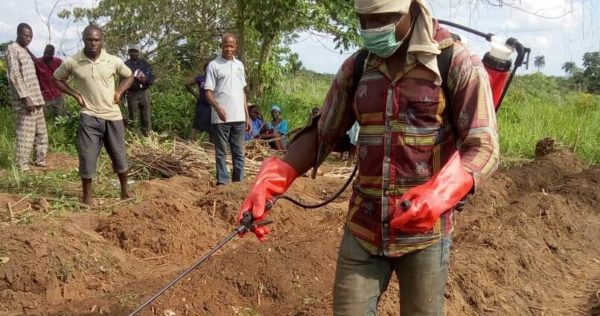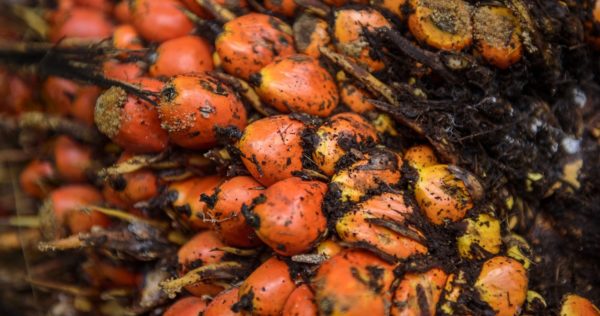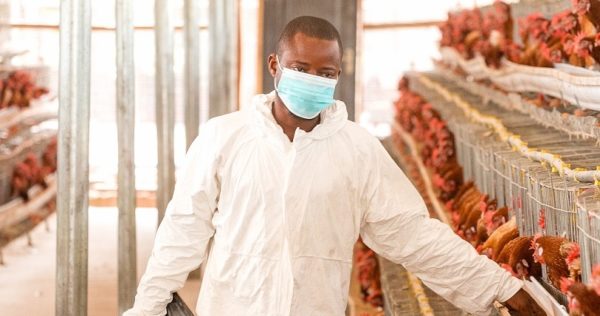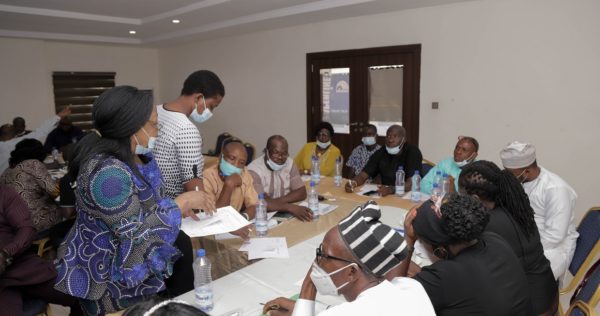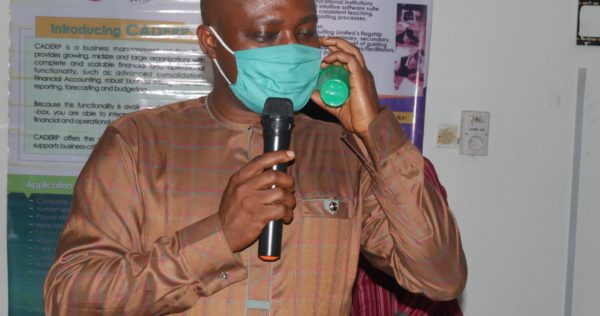Our economic development program aims to reduce poverty through positive changes in income and the attainment of gainful employment. This is achieved by facilitating sustainable outcomes and empowering smallholder farmers and MSMEs (SDGs 1, 2, & 8).
Market Systems Development
59,710 farmers and MSMEs Reached
NGN 10 billion
NGN 11.4 billion Additional Income | 9,813 New Jobs
PIND is a Gamechanger!
“My name is Alfred Ukane from Delta State. My journey started in 2013 when I was a farm manager in a fish farm for three (3) years, and after that time, I decided to move on to start doing my own business in agriculture. At the time, I was, literally, just running about with no structure, nothing. One (1) day, somebody introduced me to PIND.
Now guess what? PIND is like the equation that changed the game—YES! I have attended a minimum of six (6) trainings with PIND, such as market systems development approach, visioning, and learning workshops, and a virtual marketing training in 2020. I have some of my friends who were, literally, doing the same thing at the time, but the difference is clear between me and them now. The kind of organizations that I have approached to collaborate with, to do trainings with, and to develop a program with were all from the exposure that I received from PIND.
So, in 2020, nobody expected COVID-19. The first thing we did during the COVID pandemic was to put out a Google sheet form to get some of the challenges that some fish farmers are facing, reaching out to farmers in some of the urban areas we felt other service providers are not really interested in, those were the areas we targeted. When we put out those forms, a lot of farmers filled the forms, and we started reaching out to them, calling on the phone—one after the other. When there was a total lockdown, we got a government pass, so for those farmers who couldn’t get inputs, we did a doorstep delivery of whatever they ordered. They sent their orders to us via WhatsApp, and we would go and drop it at their doorstep. For those of them who had issues selling their fish, we called customers there to buy the fish immediately after the lockdown. So, literally, every week in and week out, we were always selling fish all through that period. Annually, let me just say, I now have a 100 percent increase in income. And in the future, I hope to have an online store that could address problems in aquaculture and, also, access to finance.”
The Journey to Resilient Agricultural Markets and MSMEs: 2012–2020
When our agricultural value chain development and business linkages projects launched at the outset of 2012, with the sustainability of results a top-priority, PIND adopted MSD (market systems development) as the ideal approach for attaining our mission of poverty reduction. This is because it builds market resilience irrespective of the operating environment. Using the MSD approach also makes it easy for us to see when we are succeeding, typified by the availability of a diverse range of entrepreneurial support actors, known as local private extension service providers (LPESPs). They are commercially selling services targeted to meet the needs of smallholder farmers and micro, small, and medium enterprises (MSMEs). Such services are usually underscored by mutually beneficial relationships between the market actors that increase productivity and income.
Working collaboratively with the then market development MADE project in the Niger Delta, funded by the United Kingdom’s Foreign, Commonwealth & Development Office (FCDO), (formerly the Department for International Development), PIND built a crop of service providers for the region. They provided the training, the monitoring visits, and the mentoring to ensure that the service providers became adept in their services and have tools for continuous quality enhancements.
The unexpected advent of a pandemic in 2020 and the elicited exigent restrictions had an initial negative impact on smallholder farmers, micro, small, and medium enterprises (MSMEs, and the entire market. They encountered poor access to inputs, funding, market, labor, and service providers. However, the active and skilled service providers, utilizing their commercial relationships in the sectors, enabled the smallholder farmers and MSMEs to adapt and respond to some of the external shocks. This helped the market to remain afloat and as profitable as possible, underscoring the resilience of the technical and business services market PIND evolved.
Joint-market response – Making a nimble move in the face of the pandemic disaster, PIND quickly facilitated virtual engagements between the service providers to discuss the pandemic-induced challenges to business and collectively device solutions while ensuring joint analysis and information-sharing between actors.
The service providers learnt about what each other was doing and devised a joint, market-wide response to the pandemic challenges.
Market analysis and information: To make the joint-market response more evidence-based and effective, PIND invested in analyzing and sharing our findings with the service providers to understand the pandemic-caused challenges and the appropriate responses.
Service adaptation: PIND helped the service providers to innovate and adapt their services—extension services, technology provision, and input provision—and their mode of operating to address the most pressing needs of the farmers and MSMEs. Examples of the changes made by the service providers include:
Using virtual and ICT platforms and social media to host training programs and provide technical and business information to farmers and MSMEs.
Assisting farmers and MSMEs to deploy virtual and online marketing strategies to sell their produce.
Helping farmers to adopt new storage and processing technologies such as fish farmers smoking their fish to preserve them.
Identifying and connecting new buyers to the farmers and MSMEs.
Commercial collaborations: With the support of PIND, service providers who could not visit their clients reached out to their commercial counterparts to serve the farmers and MSMEs on their behalf. The providers with virtual training infrastructures and skills also offered such platforms for a fee.
COVID-19 guidelines orientation: With the guidance of PIND, service providers conducted demonstrations and trainings in strict adherence to the pandemic safety precautions to reduce the inequity of those without virtual access.
Through these adaptations, the service market enabled the flow of market information to farmers and solved the pressing problems of farmers and MSMEs, especially around access to inputs.
Ten Years of Enabling Markets’ Flexibility
In ten (10) years, PIND’s market-based solutions have established enabling factors that facilitated the rapid adaptation of the service providers to the external shocks in target agricultural value chains and MSMEs:
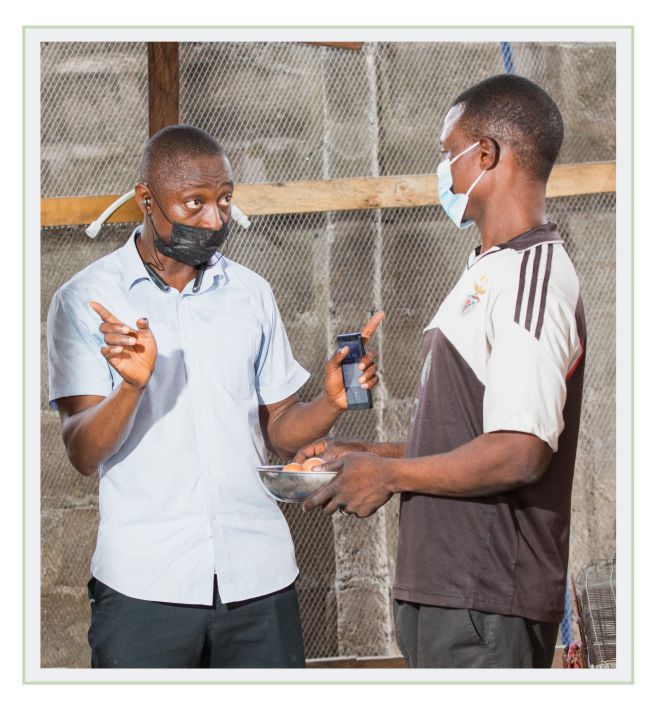
MARKET LINKAGE, SUPER MARKET!
Nzeota Prince Uche, Poultry Service Provider, Rivers State.
“My name is Nzeota Prince Uche, a poultry farmer and service provider. There are some persons I met through PIND who have given me links from which I have made so much money, and they have also given me advice that has helped me directly or indirectly. Let me give you a case instance. There was somebody I met at one (1) of the PIND trainings (for service providers) held in Warri. This lady linked me to where I could sell my supply of birds. Now, the kind of order these people are bringing is so much that I can categorically say I have never met up with their demand. In fact, they will tell me, “I want 100 birds of broiler.” And, when I give them that, they will ask for another 100 in a week followed by another 200…by the time I do that, I am out of stock!”




